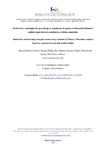Motivación y estrategias de aprendizaje en estudiantes de grado en Educación Primaria: análisis según factores académicos y hábitos saludables

Use este enlace para citar
http://hdl.handle.net/2183/23918
A non ser que se indique outra cousa, a licenza do ítem descríbese como Atribución-NoComercial-SinDerivadas 4.0 España
Coleccións
Metadatos
Mostrar o rexistro completo do ítemTítulo
Motivación y estrategias de aprendizaje en estudiantes de grado en Educación Primaria: análisis según factores académicos y hábitos saludablesTítulo(s) alternativo(s)
Motivation and learning strategies in university students of Primary Education: Analysis based on academic factors and healthy habitsAutor(es)
Data
2019Cita bibliográfica
Chacón-Cuberos, R., Padial-Ruz, R., González-Valero, G., Zurita-Ortega, F., & Puertas-Molero, P. (2019). Motivación y estrategias de aprendizaje en estudiantes de grado en Educación Primaria: análisis según factores académicos y hábitos saludables. Sportis. Scientific Journal of School Sport, Physical Education and Psychomotricity, 5(3), 469-483. https://doi.org/10.17979/sportis.2019.5.3.5465
Resumo
[Resumen] El desarrollo de estrategias de aprendizaje, niveles adecuados de motivación de
orientación intrínseca y la prevención de altos niveles de estrés y ansiedad académica resulta
esencial para el logro del desempeño académico en el contexto universitario. El presente
estudio, de carácter descriptivo y corte transversal, persigue como objetivo relacionar los
niveles de motivación y estrategias de aprendizaje con el rendimiento académico y la práctica
de actividad física de estudiantes universitarios (n=225). Para ello se emplea como principal
instrumento el cuestionario MLSQ-SF, utilizando el software IBM SPSS® 23.0 para el
análisis estadístico. Los resultados revelan una asociación negativa entre la calificación y el
valor de la tarea, así como una relación positiva entre la calificación y las estrategias de
organización, el tiempo y hábitos de estudio y la regulación del esfuerzo. Asimismo, se
observó como el nivel de motivación intrínseca se asociaba positivamente con la regulación
del esfuerzo, las estrategias de organización, elaboración y meta-cognitivas, o con el tiempo y
hábitos de estudio. En relación a los hábitos saludables, se pudo observar que la práctica de
actividad física disminuía los niveles de ansiedad y se relacionaba con peores estrategias y
regulación del esfuerzo [Abstract] The development of learning strategies, adequate levels of intrinsic motivations and the prevention of high levels of stress and academic anxiety is essential for the achievement of academic performance in the university context. This descriptive and cross-sectional research aims to relate the levels of motivation and learning strategies with the academic performance and physical activity practice of university students (n = 225). For this, the MLSQ-SF
questionnaire is used as main instrument, using the IBM SPSS® 23.0 software for statistical
analysis. The results showed a negative association between the academic marks and the
value of the task, as well as a positive relationship between the academic marks and the
organizational strategies, the time and study habits and the regulation of the effort. Likewise,
it was observed how the level of intrinsic motivation was positively associated with the
regulation of effort, organization, elaboration and meta-cognitive strategies, as well as the
study habits. In relation to healthy habits, it was observed that the practice of physical activity
decreased levels of anxiety and was related to worse strategies and regulation of effort
Palabras chave
Estrategias de aprendizaje
Rendimiento académico
Actividad física
Estudiantes universitarios
Learning strategies
Academic achievement
Physical activity
University students
Rendimiento académico
Actividad física
Estudiantes universitarios
Learning strategies
Academic achievement
Physical activity
University students
Versión do editor
Dereitos
Atribución-NoComercial-SinDerivadas 4.0 España
ISSN
2386-8333






